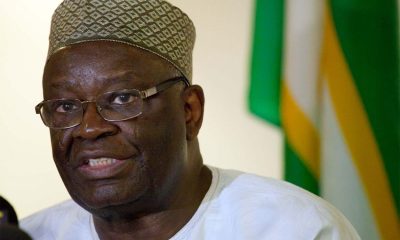Nigeria News
Don’t waste borrowed funds, IMF warns Nigeria, others

-IMF warns Nigeria against the mismanagement of borrowed funds.
-The international financial institution also revealed it’s easy for some countries to attract loans.

The International Monetary Fund (IMF) says the growth being experienced will be at risk if Nigeria and other countries do not put borrowed funds to good use.
Tobias Adiran, the financial institution’s director of monetary and capital markets, issued the warning on Wednesday while unveiling the Global Financial Stability report at its Washington headquarters.
“External borrowing in emerging markets and low-income countries have increased.”
“Portfolio inflows to emerging markets economies are on track to reach $300 billion in 2017, more than twice the totals over the past two years. This is broadly good news, supporting growth prospects in these countries. But this greater reliance on foreign borrowing may at some point become a vulnerability, if these resources are not put to good use.”
“Funding for Sub Saharan African countries have very favourable conditions in fact debt issuance in Sub Saharan Africa has been at very high levels. The key question is how are those funds used by those countries? Are countries using those funds in order to ensure financial stability and ensure sustainable outlook?” he asked.
“The main risk we see is that countries continue to build up their debt because it’s cheap, they can roll over existing debt and that might generate
“We present a scenario where this kind of buoyant financial situation continues to exist for another two years and some adverse shock hits and some countries are hit particularly hard.
“This is no time for complacency. Action is required because vulnerabilities are building. This could put growth at risk in the future.
“Major central banks should ensure a smooth normalization of monetary policy and financial regulators should deploy macroprudential policies and consider extending the boundary of such tools to curb rising leverage and growing stability risks.”
Recall Nigeria’s minister of finance, Kemi Adeosun had also warned against continued borrowing by government at all levels. Urging the government to rather focus on ways of diversifying the nations economy rather than the normal practice of accumulating both internal and external debts.












